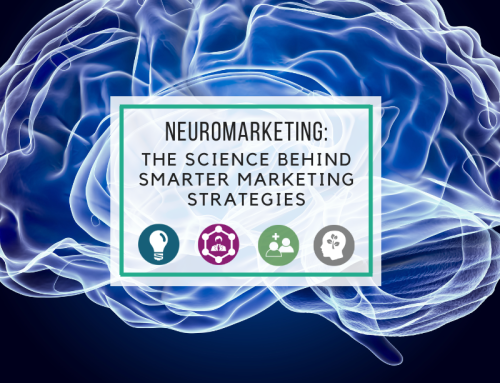Technology is rapidly evolving, and with it, consumer behaviors are changing at breakneck speed. In 2019, businesses must choose to adapt or be left behind. By adjusting your marketing strategies to the current technologies and buyer behavior, you send a message to your target audience that you are listening, you know what they want and you are prepared to deliver.
A new year provides the perfect opportunity for businesses to turn the page in their marketing book, try something new, and adapt to the consumer. Are you ready? Here’s what you need to know about small business marketing trends in 2019.
Voice Search. Do you know how your customers like to communicate? Knowing this information is key: some analysts predict that within the next two years, 50% of all searches will be made through voice search. Thanks to smart devices, smartwatches, smart speakers, and digital assistants like Google Assistant and Amazon Alexa (just to name a few), younger generations are growing up in a world where voice rules.
How does this play into marketing? Until recently, search engine optimization was based on keyboard search inputs. But speaking and typing are very different, and to stay ahead of the curve, marketers must begin transitioning their SEO toward natural speech patterns. For example, to optimize for a traditional Google search, you might use a key phrase like “used bike shop Dallas.” But to optimize for voice search, think about how you normally speak and adjust key phrases accordingly. For example, “where can I buy a used bike in Dallas?”
Authenticity. In the age of automation, marketers must find ways to add a personal touch whenever possible, so as not to sacrifice the relationship for the convenience of tech. This isn’t to say there’s no place for traditional advertising, but adding value for the consumer must be a top priority for today’s marketer. Don’t be afraid to create raw, authentic content — such as Facebook Live video — for your audience. It’s about being real and personal, not overproduced. It’s more important to share authentic and relevant content daily than blow your budget on one video a year. Focus more on communicating what is important rather than waiting for something “perfect.” Go short and often with communication, rather than long and overproduced. Your audience will consume what matters to them when it applies to them.
Relevance. The majority of your audience pays little attention to traditional ads, and that’s been a growing trend in recent history. In 2015, a Nielsen study found that the top four most trusted sources of advertising were: people you know, branded sites, editorial sites and reviews. This is why the saying goes, “content is king.” Developing valuable content that is relevant to your audience is the first ingredient in the secret sauce. Secondly, you must meet your audience where they are. Did you know that 80% of people don’t even open or read the emails they receive? 55% percent of people spend less than 15 seconds on a website. To be relevant, you must deliver your message to your audience on the platform and in the manner that they prefer.
Mobile First. It’s no longer about simply being better. To get ahead, you must be different. There are three billion smartphones in the marketplace, and that number is projected to double by 2020. How many smartphone users do you know (including yourself) who always have their device in hand or within reach? Mobile is the consumer’s platform of choice and, therefore, must become your priority as a marketer. We live in an instant, 24/7 world where at least 80% of the population uses mobile devices on a daily basis. If your website isn’t mobile-friendly, you’ve already fallen behind. More than creating a website that simply adapts to mobile, build your website and center all of your marketing around the mobile platform first. Stay tuned for future blogs on unique, mobile-first marketing ideas for small businesses.
If you’re ready for a new approach to your marketing plan in 2019, we can help. We will evaluate your current strategy and tactics, make recommendations to refresh your plan and implement a strategy that is fine-tuned to your audience.






I don’t even know the way I stopped up here, but I believed this publish
was good. I do not recognise who you might be but certainly you’re going to a famous blogger if you are not already.
Cheers!